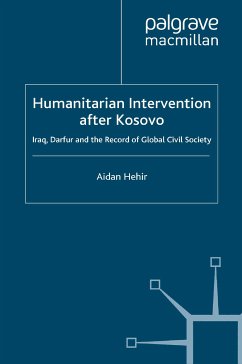Shortlisted for the 2008 Macpherson Prize of the Canadian Political Science Association
'Considering the plight and the miseries suffered in recent years by millions of people in places such as Somalia, Rwanda, Bosnia, Kosovo, Iraq and Darfur, Catherine Lu boldly attempts in this book to develop a coherent and resolutely cosmopolitan normative global theory. Much of her originality stems from a reconsideration and reformulation of the public-private distinction. The bulk of the book consists in a thorough examination of three ethical perspectives in international affairs: realism, communitarianism and cosmopolitanism. Lu writes intelligently about the premises and problems at work in the approaches of such authors as Rawls, Beitz
and Walzer. She clearly endorses a liberal cosmopolitan perspective, placing what she calls "duties of humanity" at the very basis of international and domestic orders. Her analysis is supplemented with an insightful consideration of the contemporary ethical challenges faced by state and civil society agents. The book ends with a lucid assessment of the limits of an approach that focuses on humanitarian intervention rather than on the duties of cosmopolitan justice.' - Jury for the 2008 C.B. Macpherson Prize
'In this elegantly written, carefully argued and sophisticated book, Catherine Lu offers a novel approach to the problem of humanitarian intervention. Drawing on the conceptual similarities between family privacy and statesovereignty, Lu argues that just as privacy in the domestic context has been recalibrated in the name of protecting individuals, so state sovereignty as a form of privacy in the international context ought to be reconceived. Lu shows how cosmopolitanism provides the most reasonable and attractive understanding of the public/private distinction as it applies to states. This is an original and timely contribution to an urgent and pressing topic.' - Kok-Chor Tan, Assistant Professor of Philosophy, The University of Pennsylvania, USA
'...a well-written theoretical and normative study...this book will interest scholars in international relations, philosophy, peace studies, and international law. Summing up: Recommended.' - F. S. Pearson, Choice
'...Lu successfully approaches the matter in a novel and innovative manner that is highly thought provoking and well structured...a book that is well worth taking the time and effort to read, and will prove to be an excellent resource to students and academics alike'. - Taryn Shepperd, Politics and Ethics Review














